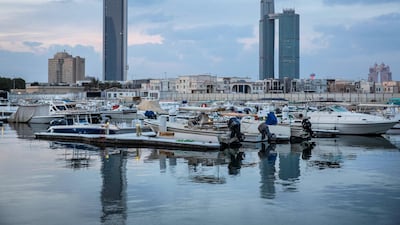Abu Dhabi reduced the fees for issuing country-of-origin certificates as part of incentives aimed at attracting foreign direct investments and lowering the cost of doing business.
The Abu Dhabi Chamber of Commerce and Industry made the announcement on Monday at the Abu Dhabi Business Forum, organised by the chamber in partnership with the Department for Economic Development (DED). A country-of-origin certificate is used in international trade to attest where goods are produced, manufactured or processed.
Abu Dhabi’s economy, which saw foreign direct investment flows grow 8 per cent in 2017 from a year earlier, also benefited from a 21.7 per cent increase in the number of new licences in the first seven months of this year from a year earlier, Saif Al Hajiri, chairman of Abu Dhabi’s DED, told the forum.
___________
Read more:
Abu Dhabi extends company licence package to GCC nationals and UAE residents
Abu Dhabi phases in dual licences to free zone firms
___________
The department is currently undertaking seven initiatives out of 10 announced in June as part of a three-year Dh50 billion stimulus package, the chairman added. It has also worked on improving employment opportunities for Emiratis and aims to help in the creation of no less than 10,000 jobs in the private and public sector for citizens over the next five years.
Abu Dhabi announced the stimulus package as part of plans to reduce the emirate's reliance on oil by diversifying the economy and making it easier for companies to do business, in turn bolstering growth.
Among the seven initiatives the department is working on is its expanded Tajer Abu Dhabi licence package, which is now open to applications from all GCC nationals and UAE residents with an Emirati partner.
The service allows new companies to obtain commercial licences without an office or physical presence, with the scope of the latest initiative increased to include 1,057 eligible commercial activities. It will now also accept three legal formats: one-person companies for Emiratis; one-person companies for GGC nationals and limited liability companies for residents in partnership with Emiratis.
This aims to ease business conditions for entrepreneurs and small-to-medium enterprises looking to set up in the emirate.
The DED is also rolling out dual licences allowing companies in free zones to establish an onshore branch.
The first phase of the initiative is open to companies based in Abu Dhabi and in one of its free zones. It is also working on the second phase that will allow more companies to qualify for a dual licence.

